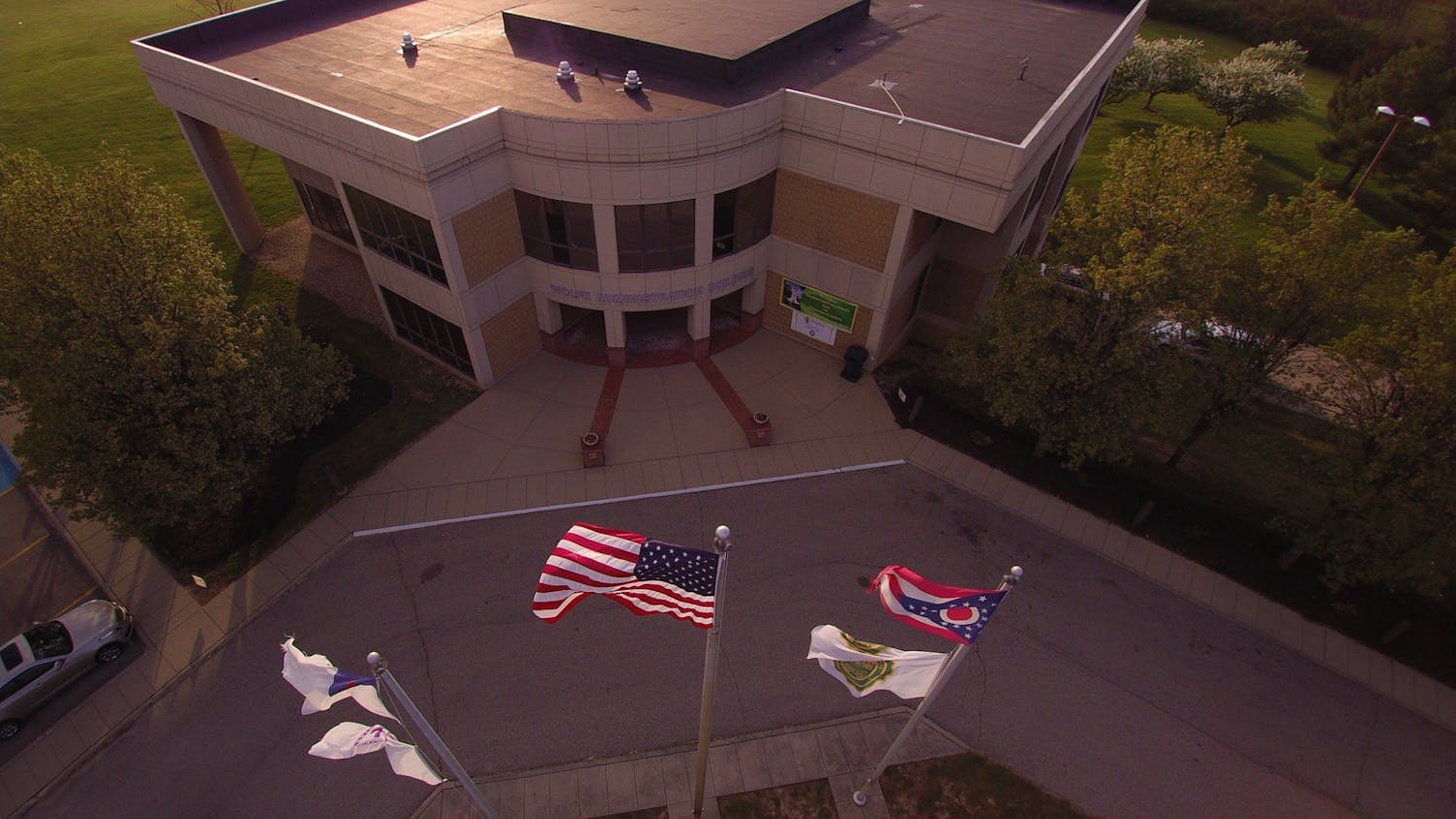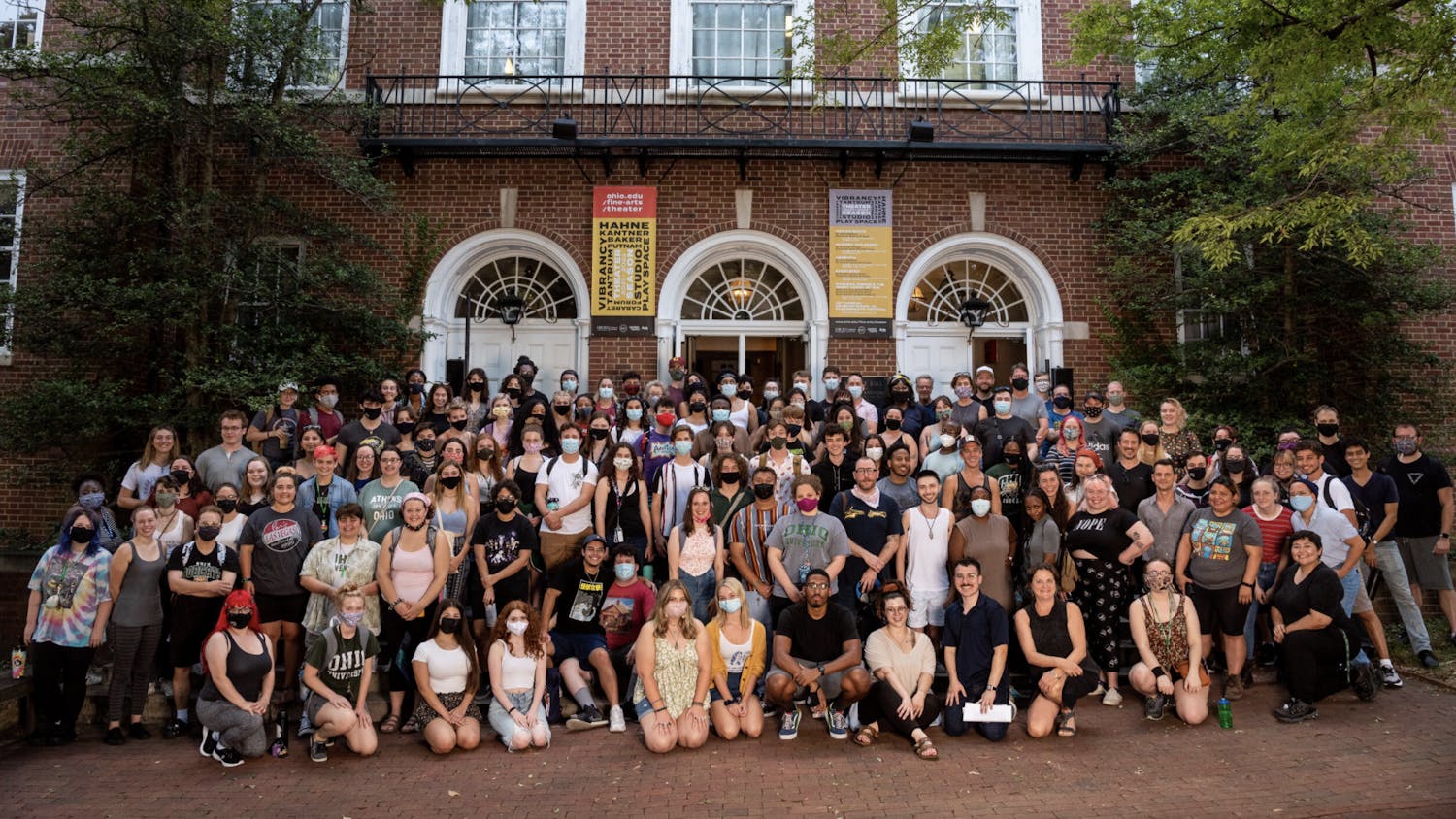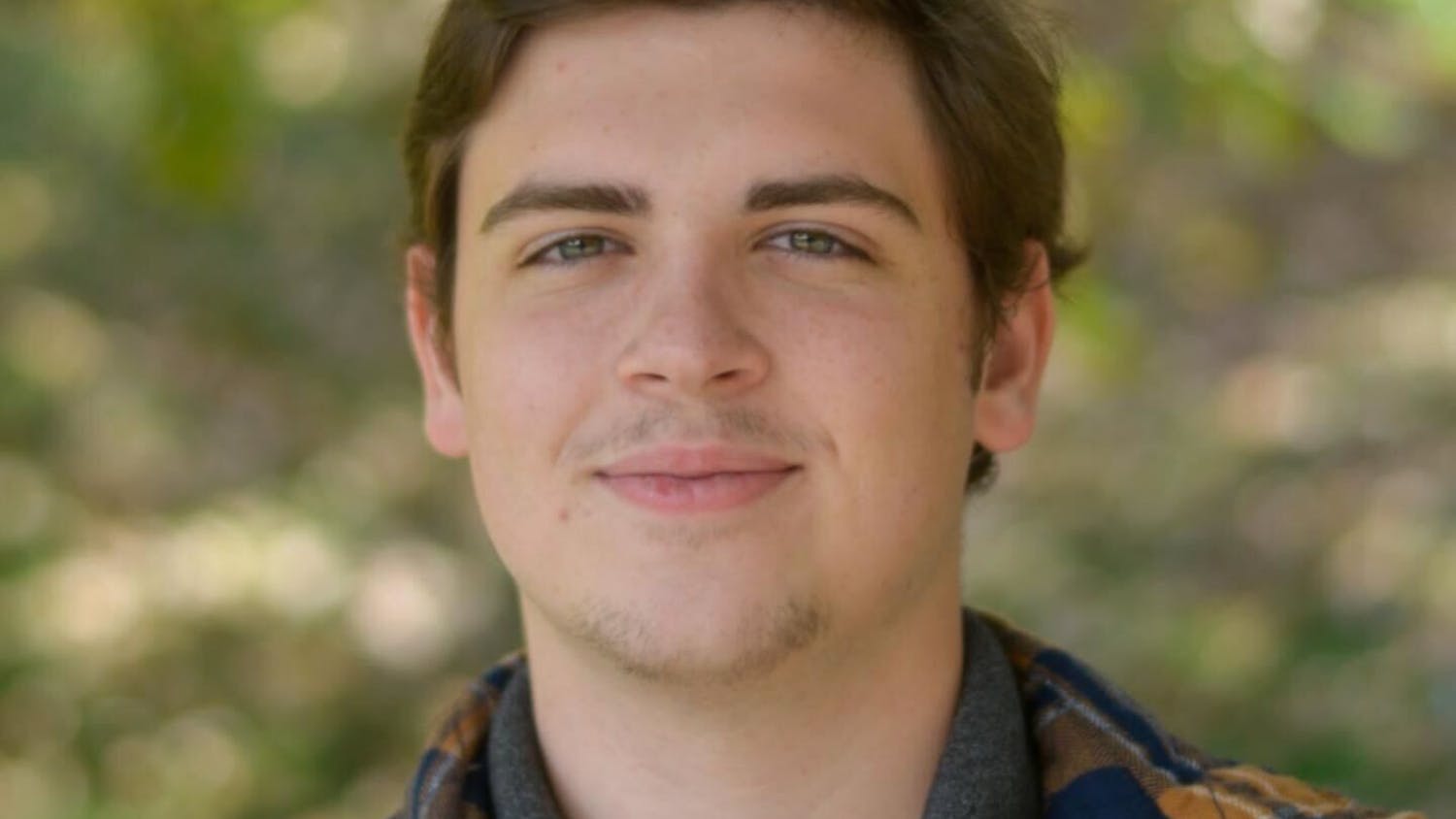Students met Feb. 8 for a collaborative discussion hosted by the African Student Association Undergraduate Chapter, or ASAUC, and the Black Student Union, or BSU, to discuss how African and African American students can “bridge the gap” of acceptance within the African Diaspora.
The presentation and discourse was led by ASAUC freshman representative Joi Foy, public relations officer Chelsea Tano, historianDaniel Nyarko and President Jennifer Ayarkwa. They began the event by playing a video about African Diaspora and its subsequent waves.
A video shown during the event described African Diaspora as “an individual of African descent that is not currently living or residing on the African continent.” It is a term “used to describe the mass dispersion of peoples from Africa during the transatlantic slave trades from the 1500s to the 1800s."
Acceptance by other African Communities
Nyarko kicked off the conversation and said he didn’t feel accepted in African American communities when he was younger because of “a whole bunch of name-calling” and other factors. As he got older, he said people became more aware of his culture and were willing to learn.
“Other people got more knowledgeable and accepting of my culture,” Nyarko said. “I’m more willing to bring people into my culture.”
Other students discussed their experiences growing up in places like the Bronx in New York City, N.Y., where there was a mix of Caribbeans, Africans and African Americans where it was rare they were affected by ignorance regarding their culture. They started to see more ignorance once they moved to Ohio, where they said people didn’t know “there were actual Black people that lived in Latin America that spoke Spanish.”
Tano said she faced a lot of backlash for going to private school her whole life. She said her family is Ghanaian, and that she felt more accepted in a way because her parents spoke the language to her growing up.
“At the same time, when I was younger, (people) would be like, ‘You’re a white girl. You go to a white school,’” Tano said. “Everybody was in the same boat; I’m just going to school to get an education.”
At the time, Tano said it hurt because she thought her community should have been a safe space. Now, Tano said she feels more accepted.

Cultural Differences and Similarities within Students’ Communities
BSU parliamentarian Christopher Lawrence-White, who used to write for The Post, said spirituality is a shared value between Africans and African Americans.
“The Black American experience, through all its trauma and all its turmoil, clung very heavily onto its spirituality and its closeness to God,” Lawrence-White said. “I feel like at the same time, that’s kind of been echoed across the ocean… in African countries and cultures over there, as well.”
Another similarity that was mentioned was the importance of the arts within African and African American cultures. One student said food, dance and music develop a kinship and connection to family.
Assimilation and Co-existence in African American Culture
Tano said her dad went to high school in the U.S. and that his culture is a mixture of Ghanaian and American. Given her dad’s school experiences in the U.S., Tano said there was no real adaptation to African American culture.
“(My dad) was in African American households and environments, so it wasn’t hard to adapt,” Tano said. “But I definitely saw the differences between Ghanaian culture and African American culture, and similarities and being able to use that interchangeably in the household.”
Lawrence-White said both of his parents immigrated to the U.S. when they were adults. He said they brought with them cultural aspects of the Caribbean, which were passed down to him. Lawrence-White said there were differences between Caribbean culture and other cultures he encountered. Some people reacted to the cultural differences in a way that made him feel “like an outsider.”
“Growing up (with) various differences in how I speak, I got a lot of ‘You don’t speak like us, you don’t say your words like us,'” Lawrence-White said.
Lawrence-White also said when engaging with the world one can find themselves seeing and engaging a lot more.

Disconnection More than a Divide
BSU vice president of public relations Jayla Nealsaid there was not a divide between the African community and the Black community where she went to school growing up. Neal said she thinks the reason she did not see a divide was because she went to a diverse middle school.
“I would say, from what I've noticed, it's more of a disconnect than it has been a divide,” Neal said.
Neal said there are differences in how people connect with their day-to-day life on the basis of knowing where their family originates from.
“I have to take a 23andMe to figure out where I’m from versus somebody else that I know is strictly from Ghana or they know exactly where they're from,” Neal said. “I think from there, it makes it different.”
Lawrence-White said the divide is a matter of education, and to understand the divide people need to know about the history that caused it.
Similarly, Tano said that knowledge is power.
“Being able to know about history, especially Black history, is very important and can answer a lot of questions within the Black community, and help the Black community come together so it can be stronger,” Tano said.
Bridging the Gap at Ohio University and Beyond
Ayarkwa said that one way the gap can be bridged between Africans and African Americans is being more mutually welcoming.
“I think that a lot of Africans don’t understand how much it means to some Black people for them to explore African culture even though they might wear stuff or do stuff out of context,” Ayarkwa said. “Instead of being offended by it, just take it as an opportunity to educate them.”
Neal then asked how people feel about different labels and how they personally identify.
“When I talk to a lot of people around my age they’re like, ‘I'm just Black like Black American,’” Neal said.
Lawrence-White said identities and labels are different in every country. He said the first thing the U.S. sees is that he is Black, but even in the same country in Africa, Lawrence-White said, identities and labels are more complex.
“There’s so many ethnicities within that one country,” Lawrence-White said. “My culture was something that was really instilled within me so I’d say I didn’t identify first as a Black American... But it really comes down to the person.”
No matter what someone prefers to be identified as, Lawrence-White said he thinks labels are still important because a lot of people in the Caribbean are not aware of their origins even if their grandparents are from a country there.
“I do think labels are important to us,” Lawrence-White said. “We don’t want to see a culture disappear, we want to see what they actually are.”






